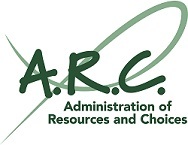
Work with one of A.R.C.'s HUD-Certified Housing Counselors to become mortgage ready and start building generational wealth.
If you grew up with parents who lived paycheck to paycheck, you may have never had the opportunity to learn good financial habits. Maybe your parents had no one to teach them, either. If you don’t learn these things from your parents, where do you learn things like budgeting, saving, or investing? Today, some high schools require courses in financial literacy, where students learn how to budget, save, and invest.
Those who grew up having to provide for themselves learned about personal wealth the hard way--building it themselves. But there are strategies to help you build personal wealth that you don’t have to learn the hard way.
What is Wealth?
Everyone may have a different idea of what it means to be wealthy, but there is a general consensus. A 2002 survey by Charles Schwab found that most people thought you needed at least $2.2 million to be considered wealthy, and at least $774k to be financially comfortable. These numbers aren’t referring to income or how much in savings. Instead, they refer to what’s called “net worth.” Net worth is the total of all your assets, like stocks, bonds, land, and property. Things like cars, boats or RVs do not count toward net worth. Net worth only includes things that gain value over time.
How Can I Build Wealth?
Building wealth isn’t just for people who want to be rich. You want to build wealth if you want to retire someday, put a child through college, or buy a home. All of these things require saving money over time so you can afford something that makes your life better and more comfortable. There are a few practices that are essential if you want to build wealth: setting a budget, saving money, and keeping debt to a minimum.
When we talk about debt in terms of building wealth, we’re not talking about buying a home or investing in your business. We are talking about debt that doesn’t result in an asset like a home or business, because the worth of those items can cancel out the debt resulting from buying them. Credit card debt, personal loans, car loans, medical debt, and student loans are all examples of bad debt. When you pay off bad debt, you have nothing to show for it. This is the kind of debt we want to avoid. When you are finding your net worth, you add up all your assets and then subtract from that all your debt. The balance is your net worth.
Wealth-building Practices
To build your net worth, you need to set financial goals. How much wealth do you need to feel secure or be financially comfortable? From there, you can work backwards and figure out how much you can save or how much more you need to make. Setting financial goals might make you realize you need to go back to school or get more training so you can earn more to meet your goals. It might inspire you to be more disciplined with your spending so that you can save more. Whatever your goals are, they have to mean something to you or they won’t be significant enough to change your spending habits.
Once you know what your goals are, a financial counselor can help you make a plan to get there. Our HUD-Certified Financial Counselors don’t make the decisions for you. Instead, they gather all the information they need about your finances and your goals for building wealth and help you create a plan to be able to afford what you want, whether that’s so save for retirement, buy a home, or help a child get through college.
What is Generational Wealth?
We talked about personal wealth--having enough money to own or do the things you want in life. But what does generational wealth mean? Generational wealth is the idea that once you have gotten what you need out of life, that there is enough leftover for your children to be able to do something big, like buy another home, put a child through college, or start a business. Generational wealth creates financial stability over generations, not just for one family.
There are a few ways to build generational wealth in your family, and some of the things that are vital for generational wealth cost nothing, like talking to your kids about money. Helping your children learn about money by giving them ways to earn it and helping them manage it from a young age can set them up for lifelong good money habits. This should also include teaching them about credit cards and how to use them responsibly. Even young kids can learn how to save up for something they want, or create a budget with allowance money. Older kids should learn about cost of living and how to budget for gas, car repairs, and insurance once they can drive.
-
Personal Wealth
Personal wealth is the total value of a person's assets minus their liabilities, also known as net worth. It's a measure of a person's financial health and can include money, property, and other valuable items.
-
Generational Wealth
Generational wealth refers to financial assets passed from one generation of a family to another. Those assets can include cash, stocks, bonds, and other investments, as well as real estate and family businesses.
Building Generational Wealth
Aside from raising financially literate children, investing is key for building generational wealth. Savings accounts are great for emergencies, but your money shouldn’t sit in savings for long periods of time. Based on how long you have to invest, there are different options that can earn you far more than even a high-yield savings account, including very low-risk options. You should also protect your earning potential by having life insurance, and protect your assets by using estate planning tools to prevent your assets from being put through a long and expensive process of being distributed by a court when you die. Estate planning allows your assets to more easily pass on to your heirs without a large tax burden.
If you’re ready to start working toward the path to generational wealth in your family, talk to our HUD-Certified Housing Counselors. Whether you have long-term goals of wealth-building or are just trying to figure out how to save up a down payment, our counselors can help your learn smart money habits and get on the path to generational wealth. Submit your information below to get started.
